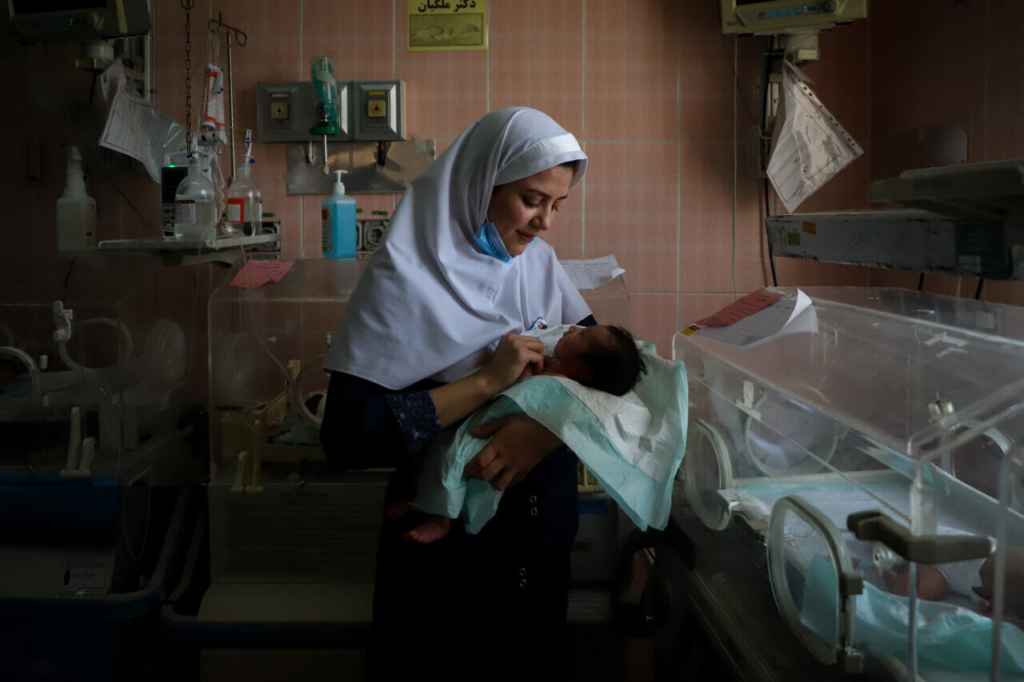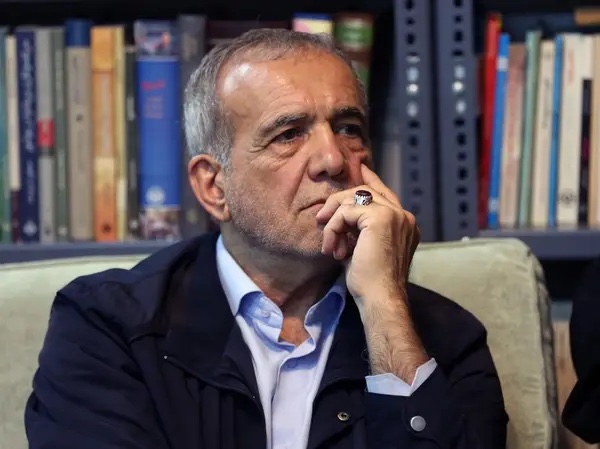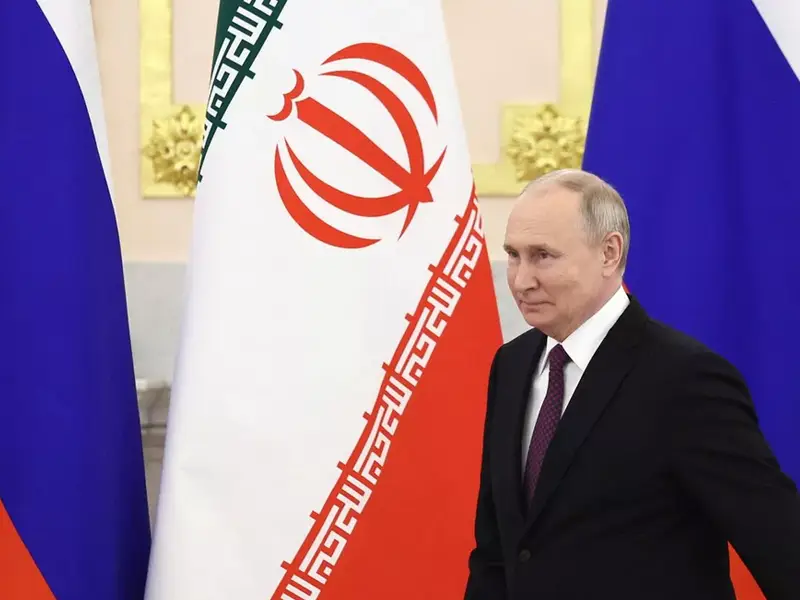
Pezeshkian, We Have Not Attacked Anyone, and We Will Not
An editorial in Setar-e Sobh newspaper shed light on the complexities of Iran’s political landscape, particularly in the context of the recent presidential election. The editorial stated that the Iranian populace made a conscious choice by participating in the elections, emphasizing the significance of those who engaged in the process versus those who decided to boycott. The editorial noted that this choice was not just about casting a vote but about actively participating in a national dialogue aimed at transforming longstanding political narratives and overcoming decades-old rhetoric that has often hindered progress.
The editorial discussed the burden that radical slogans have placed on the country and its citizens, particularly those living in urban areas. For years, these slogans have promised change and revolution, yet they have often led to more significant socio-economic challenges rather than solutions. The editorial raised the issue of how the repetitive nature of such rhetoric has left many Iranians feeling trapped, with their livelihoods adversely affected by empty promises and political grandstanding. It argued that the cost of maintaining such radical discourse has been too high for the nation.
Reflecting on past mistakes, the editorial noted that the time has come to move beyond mere slogans and embrace genuine change. It emphasized the necessity of adapting to the evolving world, society, and the needs of the Iranian people. The editorial said that the era of blindly following outdated ideologies is over; instead, a new approach is needed — one that prioritizes rational thinking and pragmatic solutions over empty rhetoric. The editorial asserted that Iran deserves to reclaim its rightful position on the global stage, a status that can only be achieved by embracing rational discourse and thoughtful engagement with the international community.
In discussing Iran’s role in world relations, the editorial pointed out that every statement made by Iranian authorities holds significant weight and can have far-reaching implications. It stressed the importance of precise communication, urging politicians to choose their words carefully. The editorial raised the issue of the dual nature of criticism, likening it to two sides of the same coin. Constructive criticism can be a powerful tool for growth and improvement, and the editorial acknowledged the necessity of employing both praise and critique when warranted. The piece emphasized that creating a cult of personality around political figures is counterproductive; instead, transparency and accountability should guide political interactions.
The editorial discussed the notion that “reformist” discourse must distance itself from ineffective practices and individuals who have no place in the current political climate. By referencing Masoud Pezeshkian, the editorial alluded to outdated approaches that have no relevance for today’s “reformist” agenda. Pezeshkian, a prominent figure in Iranian politics, symbolizes the kind of leadership that the editorial suggested should not have a place in contemporary “reformist” dialogue. The editorial reiterated that the focus should be on meaningful engagement with the world rather than being swayed by mass populism. It stressed that Iran’s political future lies in its ability to navigate the complexities of global interactions with intelligence and foresight, ensuring that the country’s interests are safeguarded through diplomatic and constructive means.
The editorial highlighted the pressing need for Iran to move past entrenched slogans and embrace a more pragmatic approach to politics and international relations. It called for a shift towards rational discourse, careful communication, and thoughtful criticism to achieve meaningful progress and secure a prosperous future for the Iranian people. By doing so, Iran can reclaim its place as a respected player on the global stage, fostering peace and prosperity for its citizens.
Effecting Radical Transformation Requires Bravery
An editorial by Qassem Mohebali, a former diplomat, published in Setar-e Sobh newspaper, scrutinized the dynamics of Iran’s ministerial appointments, with a particular focus on the foreign minister’s selection process. The editorial stated that while ministerial portfolios are being formed and work is underway, the process is not as straightforward as it might seem. Mohebali noted that, based on past experience, the foreign minister is not directly chosen by the president. Instead, the appointment must be negotiated with and approved by the establishment’s key figures, highlighting a complex decision-making process influenced by various political forces.
The editorial discussed the decisive role of Iran’s leadership in appointing the foreign minister, emphasizing that the opinions of civil society or experts are often sidelined in this process. Despite former Foreign Minister Mohammad Javad Zarif’s remarks on a democratic mechanism for ministerial selection, Mohebali raised the issue of whether such a system genuinely applies to the appointment of the foreign minister. The editorial noted that while the idea of a democratic structure for ministerial elections is appealing, it is not necessarily effective in practice when it comes to choosing the country’s top diplomat.
Mohebali discussed how the foreign minister’s appointment is heavily influenced by leadership approval, along with input from security and intelligence agencies, and ultimately requires parliamentary attention. This procedure, according to the editorial, may risk sidelining national interests as political agendas take precedence. The editorial raised the issue of how this selection process can compromise the effectiveness of Iran’s foreign policy, as it may not always align with the nation’s broader interests.
The editorial highlighted President-elect Ebrahim Raisi’s emphasis on adhering to policies communicated from higher authorities, which are seen as clear but have shown mixed results in practice. These policies, Mohebali said, have contributed to the current state of Iran’s foreign policy, indicating a need for reform. He stressed that changes in foreign relations are crucial for the country’s development. According to the editorial, without reforming Middle Eastern policies and clarifying the nuclear deal with the United States and Europe, Iran will struggle to achieve economic progress.
In Mohebali’s opinion, Iran’s path to economic development is hindered by outdated policies that require urgent reform. He argued that the country needs foreign investment and advanced technology to strengthen its national currency, reduce sanctions, curb inflation, and spur economic growth. However, realizing these goals demands a courageous and transformative approach, starting with the selection of ministers. The editorial discussed the importance of selecting individuals who can drive these necessary changes, rather than relying on familiar faces who may not be equipped to tackle the challenges at hand.
The editorial highlighted concerns about the current candidates for key foreign policy roles and their ability to address Iran’s diplomatic challenges. Mohebali stressed the need for assertive leadership ready to implement necessary reforms that align with the nation’s strategic interests. The piece called on Iran’s political leaders to adopt a more progressive and pragmatic approach to foreign policy. It advocated for prioritizing national interests and economic development over rigid political ideologies. Embracing such an approach would enable Iran to better navigate international complexities and secure a more prosperous future for its citizens.
Is Pezeshkian Presenting Political Bribes?
An editorial featured in Siasat Rooz newspaper critically examined the political maneuverings surrounding Iran’s ministerial appointments and the influence of “reformist” groups. The editorial noted that former Foreign Minister Mohammad Javad Zarif had described the mechanism of selecting ministers through audiovisuals, indicating a transparent process. However, the editorial argued that the current conditions and movements within the relevant working groups have devolved into a system resembling “group ransom,” where individuals are positioned for personal gain rather than public service.
The editorial discussed how internal disputes among “reformist” factions have complicated the political landscape. The media, it noted, often refer to “Saturday’s companions,” alluding to influential figures like Behzad Nabavi, whose involvement has stirred controversy. Nabavi’s release of “poor doctors” to influence decision-making reflects the growing tensions. In this context, the editorial invoked an old Persian proverb: “Ash is so salty that my cook has understood,” implying that the situation has become untenable and even those complicit in the system recognize its flaws.
The editorial raised the issue of political corruption, suggesting that the true aim of these partnerships is to serve the interests of those entrenched within the working groups. These individuals, it argued, seek to monopolize the 14th government for personal benefit, rather than advancing the nation’s welfare. This pattern of behavior undermines the “reformist” agenda and perpetuates a cycle of political rent-seeking and graft.
The editorial noted that some believe that the reform process, spearheaded by “reformist” activists, has attempted to align with the policies of Pezeshkian to secure influence within the government. The editorial raised the possibility that Pezeshkian himself may be complicit in this arrangement, suggesting that his electoral promises were merely rhetorical, intended to secure votes rather than implement genuine reform.
While acknowledging that “reformist” activists played a significant role in supporting Pezeshkian during the election, the editorial questioned the legitimacy of such political maneuvering. It criticized this method of determining governmental roles and behaviors as akin to a “fight over the sacrifice,” comparing it to a form of political ransom. The editorial emphasized that this approach lacks the political and civil rationality needed to effectively govern and address Iran’s challenges.
In discussing the future course of action for Pezeshkian, the editorial argued that he faces a pivotal choice between two paths: either embracing the current approach and aligning with “reformist” factions or resisting the “thirst for power” that characterizes these groups. If Pezeshkian chooses the latter, he must navigate the complexities of forming a cabinet that truly reflects national unity and prioritizes the public good over partisan interests.
The editorial emphasized that upcoming developments will shed light on Pezeshkian’s decisions and their potential impact on Iran’s political scene. These evolving events can profoundly influence the country’s governance and its approach to critical domestic and international challenges. The piece highlighted the need for a shift away from entrenched practices towards a more transparent and accountable political system.
Who Is the Main Culprit?
An editorial in Hammihan Online discussed a pressing issue within Iranian society, particularly concerning Generation Z. It highlighted the significant gap in mutual understanding between the youth and middle-aged individuals. The editorial noted that this generational disconnect is not merely about differences in perspective but also the precise transmission of concepts and values across age groups. To bridge this divide, it emphasized the necessity for a shared language, encompassing both verbal and non-verbal communication, as a foundation for understanding.
The editorial noted that cultural differences in behavior often lead to misunderstandings. Actions that signify respect and interest in one culture may be perceived as offensive in another. Consequently, when such actions are performed without cultural sensitivity, they can result in misunderstanding. The editorial raised the issue of how this disconnect is mirrored in the generational divide within Iran, where younger generations express themselves in ways that older generations may not comprehend, often misconstruing these behaviors as disrespectful or incongruous with traditional values.
One notable example discussed in the editorial is the issue of the veil. The editorial recounted an incident two years ago on World Skate Day in Shiraz, where teenagers participated in a mixed-gender skateboarding event without adhering to traditional dress codes. This event, which drew significant controversy, highlighted the generational clash. Older generations perceived these actions as alarming, likening them to the reactions to the Shiraz Art Celebration decades earlier. However, the editorial emphasized that these teenagers were merely engaging in activities familiar to them within their homes and neighborhoods, indicating a generational shift in cultural norms.
The editorial also discussed how these generational differences extend to public religious expressions. It cited a recent incident where young women participated in Ashura ceremonies with less traditional attire, leading to public outcry and their subsequent summoning by authorities. However, the editorial argued that such attire should not be viewed as a deviation from religious norms, as women increasingly occupy roles traditionally reserved for men, including truck driving and public transport jobs. This reflects a broader societal evolution, suggesting that traditional values and practices must adapt to the changing cultural landscape.

Iran’s Maternal Mortality Remains High

The latest report from the Statistical Center of Iran revealed a concerning statistic: on average, a pregnant woman dies during childbirth every 36 hours in the country. While Iran’s maternal mortality rate is about one-tenth of the global average, it remains more than 1.5 times higher than the target set by the Sixth Development Plan.
Although maternal deaths during childbirth have decreased over recent decades, this positive trend has stalled. Official data shows that the rate of maternal mortality, which was 20 per 100,000 live births in 2016, has increased to about 24 cases per 100,000 in 2023. The Sixth Development Plan aimed to reduce this rate to 15 per 100,000 by the end of the program, but recent figures indicate a rise, with 238 deaths reported in the last year.
The increase in maternal mortality is partly attributed to a decline in birth rates, which has further dropped from over 1.45 million annually in 2016 to around 1.39 million in 2023. Additionally, the head of the medical system highlighted that 17% of maternal deaths are due to inadequate access to medical facilities, and 45% are attributed to insufficient expertise, particularly affecting women aged 30 and older.
While Iranian officials, such as Mohammad Raiszadeh, compare Iran’s rates favorably against global figures, this comparison can be misleading. The high maternal mortality rates in some countries skew the global average, making Iran’s situation appear better than it might be relative to countries with lower rates.
Pezeshkian: Iran Is Ready to Negotiate About the JCPOA to Assert Its Rights

Iran’s newly elected President Masoud Pezeshkian stated, “It was the United States that first withdrew from the JCPOA and then imposed the harshest sanctions against the Iranian people. Nevertheless, the Islamic Republic of Iran has always been ready for any form of dialogue on this matter, considering all aspects to assert the rights of the Iranian people.”
According to Tasnim News Agency, in a telephone conversation with Japanese Prime Minister Fumio Kishida, President-elect Pezeshkian thanked him for his congratulatory message and hoped that Kishida’s efforts would enhance the level of relations and cooperation between the two countries. Pezeshkian also expressed gratitude for Kishida’s condolences and sympathy, along with those of other Japanese officials, following the martyrdom of Ayatollah Raisi and his accompanying delegation.
Pezeshkian described the 95-year diplomatic and friendly relations, over a millennium of interactions between the two nations, and the positive outlook of their leaders as a solid foundation for expanding bilateral interactions. He emphasized that developing relations with Asian countries, including Japan, is a priority for Iran’s foreign policy.
He also highlighted Iran’s commitment to establishing peace and stability in the region and expressed hope that Japan, as a rotating member of the UN Security Council and Group of Seven, would exert more effort to pressure Israel and its supporters to cease attacks on Gaza.
Russia: Comprehensive Cooperation Agreement to Be Signed With Iran Soon

Russian Deputy Foreign Minister Andrei Rodenko announced that Russia and Iran have finalized a comprehensive cooperation agreement, which is set to be signed shortly.
Rodenko highlighted that the agreement, which took approximately two years to draft, is now complete. The historic signing of this document is expected to take place soon, marking a significant milestone in bilateral relations.
The Caspian Sea Is the Stage for Displaying Power

Following the arrival of a Russian naval flotilla in Iranian territorial waters, a joint maritime rescue and security exercise, named Maritime Rescue and Security 2024, commenced yesterday. The drill took place in the Caspian Sea with representatives from the littoral states, including Azerbaijan and Russia, in attendance.
The joint exercise, hosted by Iran and Russia, featured a range of naval and aerial assets. The Iranian navy deployed several of its vessels, including the missile cruiser Peykan, the destroyers Darfash and Sepid, and two AB-212 helicopters. Additionally, the Islamic Revolutionary Guard Corps (IRGC) contributed its naval unit called Shaheed Basir.
The exercise was designed around a pre-established scenario involving fire suppression, rescue operations, and damage control on a commercial vessel. The participating forces practiced extinguishing fires, rescuing crew members, and addressing damage caused to the ship. Notably, the evacuation of injured personnel was conducted by the AB-212 helicopters from the Iranian army, which transported the casualties to shore.
